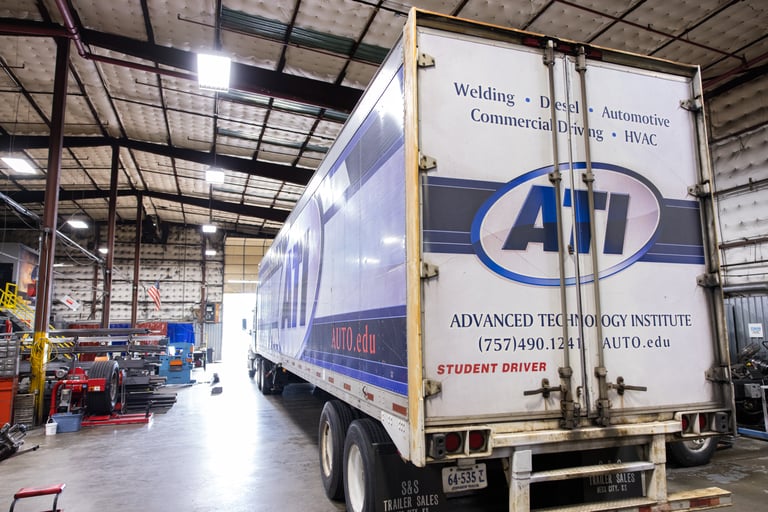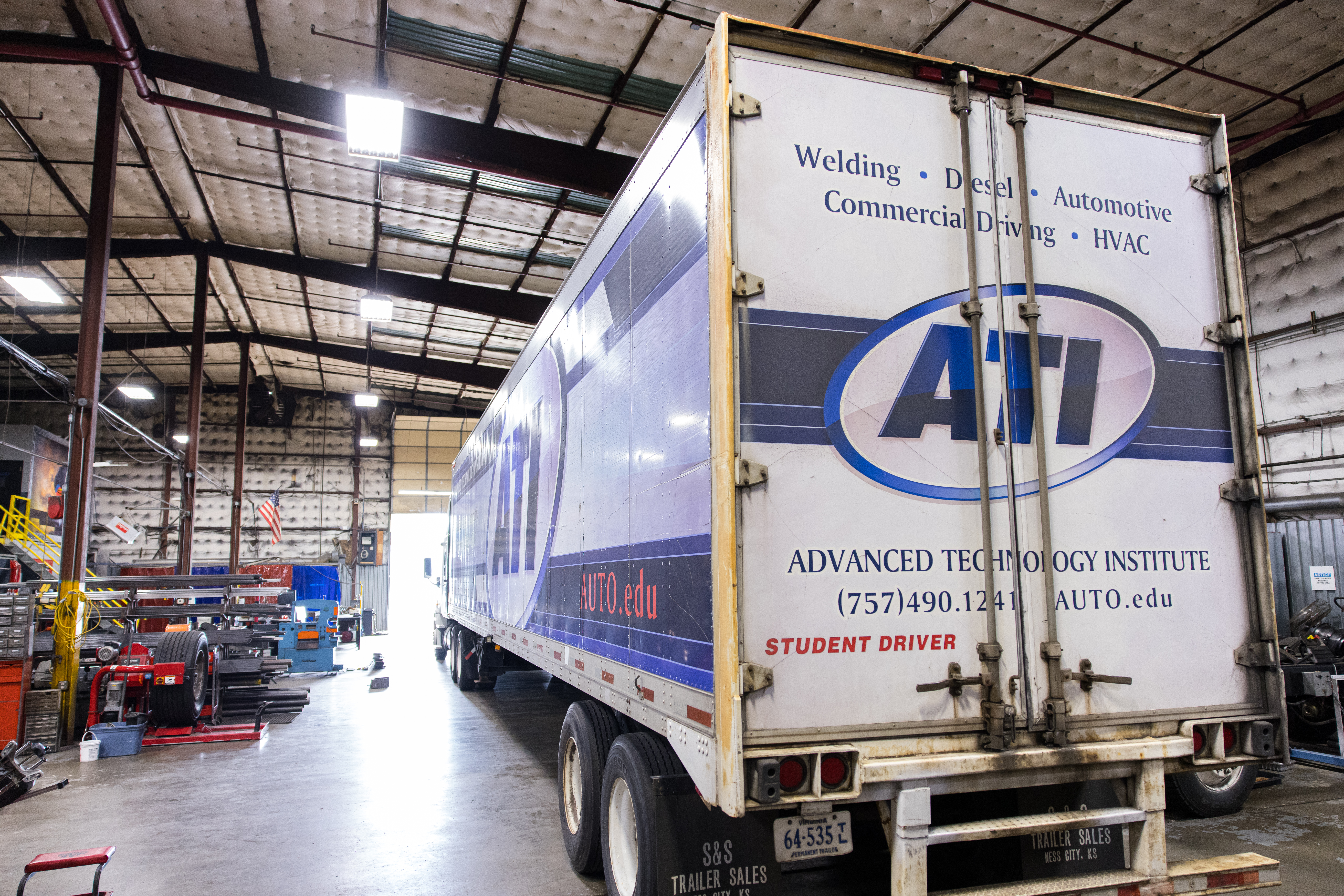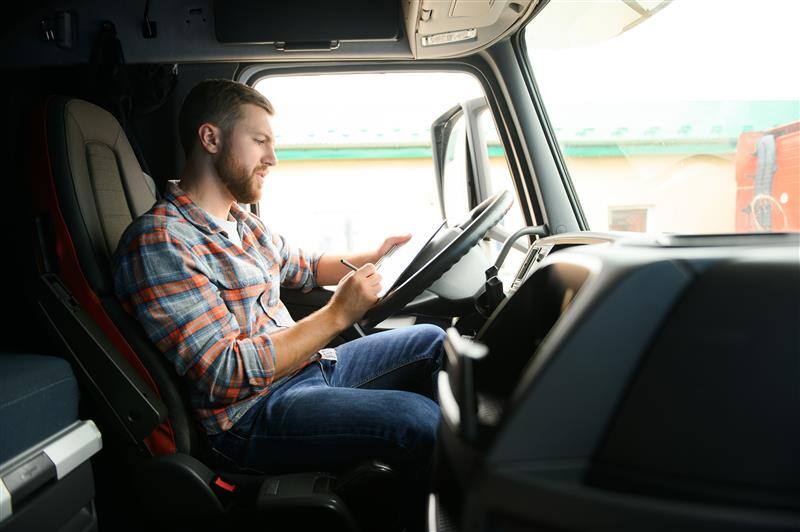CDL School: Everything you should know
-2.jpg)
If you're interested in a career in commercial driving, you’ve probably come across the terms CDL and CDL School. But what exactly do this mean, and why are they important? A CDL, or Commercial Driver's License, is a special license required in the United States for anyone who wants to operate large or heavy vehicles like trucks, buses, and trailers. Obtaining a CDL opens the door to many job opportunities in transportation, logistics, and freight industries.
Quick Links
-
What is CDL School?
-
How long are CDL School programs?
-
Differences between CDL programs
-
Do you need a high school diploma for CDL?
-
How to apply to a CDL school in Virginia?
-
How to get a CDL license without going to school?
What is CDL School
A CDL School is a specialized training program designed to prepare individuals for the CDL exam and the responsibilities of professional commercial driving. These schools offer hands-on instruction, classroom learning, and driving experience to ensure students are ready for the demands of the road. Whether you want to become a long-haul truck driver or operate heavy machinery locally, attending a CDL School can provide the skills and credentials you need.
How long are CDL school programs?
CDL School programs vary in length depending on the type of certification and the depth of training offered. Some programs last just a few weeks, while others can extend for several months.
CDL certifications are categorized primarily into Class A, B, and C licenses, depending on the vehicle size and weight:
- Class A CDL: For operating vehicles or combinations weighing over 26,000 pounds, like tractor-trailers.
- Class B CDL: For single vehicles over 26,000 pounds, such as buses or dump trucks.
- Class C CDL: For vehicles designed to carry 16 or more passengers or transport hazardous materials.
Many CDL schools offer certificate programs for these classes, focusing on practical skills and regulatory knowledge. Some schools even provide associate degrees related to transportation or logistics, which include CDL certification as part of the curriculum. These degrees can offer broader career opportunities beyond just driving.
Differences between CDL programs
CDL programs can differ based on:
- Duration: Short-term intensive courses may last 3-6 weeks, while comprehensive programs can last 3-6 months.
- Training Type: Some programs emphasize classroom instruction and written tests, while others prioritize hands-on driving experience.
- Additional Endorsements: Many programs prepare students for endorsements like HazMat (hazardous materials), passenger transport, or tanker driving, which require additional testing and training.
Typically, a CDL School program includes:
- Classroom Training: Covers driving laws, safety regulations, basic maintenance, and logbook management.
- Behind-the-Wheel Training: Practical driving lessons on various road conditions, backing up trailers, and operating different types of commercial vehicles.
- Preparation for Exams: Practice tests for the written knowledge exam and the skills test, which includes a pre-trip inspection, basic vehicle control, and road test.
Students usually progress from learning theory to supervised practice, with instructors providing feedback to improve their driving skills and confidence.
Choosing the best program depends on your goals and schedule. If you want quick entry into the workforce, a shorter certificate program focusing on Class A CDL might be ideal. However, if you seek comprehensive knowledge, including logistics or safety management, a longer program with additional endorsements and an associate degree option could be more beneficial. Look for schools with modern equipment and experienced instructors.

Do you need a high school diploma for CDL?
The answer varies depending on the state and the specific CDL School, but generally:
- Federal Regulations: The Federal Motor Carrier Safety Administration (FMCSA) does not require a high school diploma to obtain a CDL.
- CDL Schools: Many CDL Schools do not require a high school diploma for enrollment, but some may prefer or require a GED or high school diploma, especially for longer or degree-based programs.
To pursue a CDL degree or certification, most programs require:
- Being at least 18 years old (21 to drive across state lines or transport hazardous materials)
- Passing a medical exam and obtaining a Medical Examiner’s Certificate
- Passing a background check, especially for endorsements like HazMat
- Having a valid driver’s license
- Meeting any school-specific admission criteria
How to apply to a CDL school in Virginia?
If you are interested in enrolling in a CDL School in Virginia, here are the general steps:
- Research Programs: Look for accredited CDL Schools in Virginia that offer the certification you need.
- Contact Admissions: Reach out to admissions offices for detailed program information, schedules, and tuition costs.
- Submit an application: Complete the application form and provide any required documents, such as a driver’s license and medical certificate.
- Attend Orientation: Some schools require an orientation session before starting classes.
- Start Training: Begin your coursework and behind-the-wheel instruction.
When you attend a CDL School, expect:
- Comprehensive classroom lessons on federal and state driving laws
- Hands-on training with commercial vehicles
- Preparation for the CDL knowledge and skills tests
- Safety training and emergency procedure practice
- Career guidance and job placement assistance
The intensity and pace depend on the program length, but most schools aim to prepare students thoroughly for their licensing exams and real-world driving.
.jpg?width=815&height=543&name=ATI-Diesel%20Day-022323-3%20(1).jpg)
How to get a CDL license without going to school?
It is possible to get a CDL license without going to school through alternative paths:
- On-the-Job Training: Some trucking companies offer paid training programs where new drivers learn while working under supervision.
- Apprenticeship Programs: Formal apprenticeships allow candidates to train alongside experienced drivers.
- Self-Study: You can study the CDL manual on your own and schedule your CDL test independently at your local DMV.
- Private Instructors: Hiring a private driving instructor for behind-the-wheel training is an option.
Whether you attend school or train independently, you must demonstrate skills such as:
- Safe vehicle operation and maneuvering
- Performing thorough pre-trip inspections
- Understanding and following federal and state transportation laws
- Operating safely in various traffic and weather conditions
- Handling specific cargo types or equipment when seeking endorsements
Passing the CDL knowledge test and skills test is mandatory.
Even without formal schooling, you can find CDL-related jobs such as:
- Local delivery driver for smaller companies
- Construction site vehicle operator
- Municipal or government vehicle driver
- Helper or assistant to a licensed commercial driver
Some employers may provide on-the-job training to help you qualify for a CDL later.
Whether you choose to attend a formal CDL school, pursue alternative training, or self-study, gaining a clear understanding of the requirements and available options is essential for making informed decisions about your path forward.
If you’re ready to take the next step in your career and get professional training, consider enrolling in a program. Check out ATI’s CDL Program for a path to your commercial driver’s license.
Industry Knowledge
Welcome to the Advanced Technology Institute's Blog, your resource for industry insights and discussions on technologies shaping the future of automotive, heavy vehicle, hvac, welding, and other related career paths.
Explore how ATI's curriculum and hands-on learning opportunities can propel your career in the tech-driven world.
%20(1).jpg)

